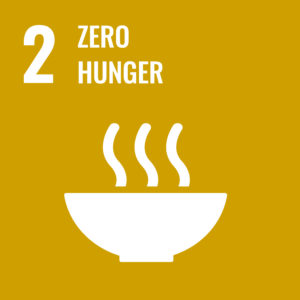
To celebrate the 17 days of competition at the Olympic Games Tokyo 2020, each day we will celebrate the power of sport and its influence in relation to each of the 17 Sustainable Development Goals (SDGs).
Today is dedicated to Goal 2: End hunger, achieve food security and improved nutrition and promote sustainable agriculture
Goal 2 of the 2030 Sustainable Development agenda seeks to end hunger and all forms of malnutrition, and double agricultural productivity in the next 15 years. Ensuring this sustainable access to nutritious food universally will require sustainable food production and agricultural practices.
- Sport-based initiatives can mobilize resources, both financial and in-kind, for assisting vulnerable communities in the field or for awareness raising activities that can mobilize the public towards ending hunger.
- The right to adequate food is required for participation in sport. Sport can promote balanced diets, educate individuals with regard to sustainable food production, and encourage improved nutrition that discards industrially processed food items and replaces them by natural and healthy food.
- Sport-based activities are a viable platform to disseminate information and messages on nutrition, issues that affect food security around the world, and the global zero hunger target.
- Support gathered through sport-based initiatives is fundamental to building the Zero Hunger Generation; to achieve Zero Hunger by 2030, it is necessary to engage the public and encourage them to drive political, business and societal decisions that can effect world change.
- Sport can raise awareness on food waste and create educational initiatives to change behaviors towards a sustainable future. Organizations can set an example by sourcing food from sustainable and responsible producers. Sport can be an enabler to build capacities and best practices for food waste management in order to tackle food waste in sport, as well as to put systems in place to reduce food waste impact especially at sport events.
Click here for a list of examples of how sport addresses the SDG 2

LED advertising comes to Nailworth
Forest Green Rovers, stadium specialists ADI and electricity storage innovators Powervault have collaborated on brand-new partnership will see the delivery of the world’s most […]


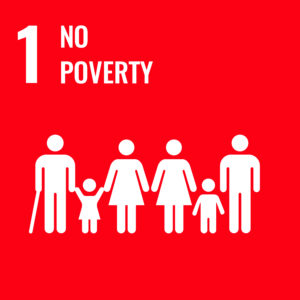
To celebrate the 17 days of competition at the Olympic Games Tokyo 2020, each day we will celebrate the power of sport and its influence in relation to each of the 17 Sustainable Development Goals (SDGs).
Today is dedicated to Goal 1: End poverty in all its forms everywhere.
Goal 1 calls for an end to poverty in all its manifestations by 2030. It also aims to ensure social protection for the poor and vulnerable, increase access to basic services and support people harmed by climate-related extreme events and other economic, social and environmental shocks and disasters
- Sport values such as fairness and respect can serve as examples for an economic system that builds on fair competition and supports an equal sharing of resources. Reinforcing competencies and values such as teamwork, cooperation, fair-play and goal-setting, sport can teach and practice transferable employment skills which can support employment readiness, productivity and income-generating activities.
- Sport can be used as a platform to speak out for the realization of human rights, including the right to an adequate standard of living, the right to social security and the equal rights of women in economic life, which have direct impacts on the goal to end poverty. Sport can also be used as a platform to campaign for socio-economic progress and raise funds to alleviate poverty.
- Sport initiatives can raise and generate funds for poverty programmes, as well as assist in raising awareness and facilitating the mobilization of needed resources to alleviate poverty through partnerships with local and international bodies.
- Sport can promote personal well-being and encourage social inclusion which may lead to larger economic participation. It can help educate empower individuals with social and life skills for a self-reliant and sustainable life.
- Sport programmes in refugee camps can help young people understand the need for cooperation as well as self-reliance. Involvement in sport programmes can provide stability and a safe environment for homeless individuals.
- Sport is itself a productive industry with the ability to lift people out of poverty through employment and contributing to local economies. Sport and sustainable sport tourism can promote livelihoods, including in host communities of sport events.
Click here for a list of examples of how sport addresses the SDG 1
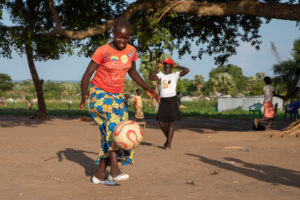
Sports federations and refugees
Support from local, national and international sports federations can make all the difference in the lives of refugee athletes and can be essential for […]




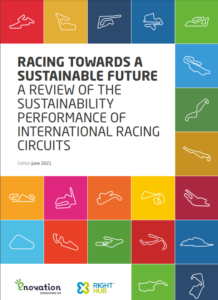
Racing towards a sustainable future: a review of the disclosed sustainability performance of international racing circuits (2021 edition)
First of its kind, using data collected in 2020, this white paper defines the Sustainable Circuits Index (SCI), providing a state-of-the-art view of what top tier motorsport venues are doing and disclosing, ending with important reflections for the sector’s stakeholders.
Click here to download the white paper




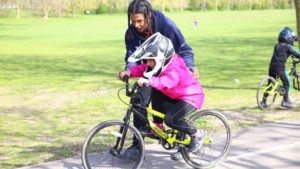
British Cycling and the Rapha Foundation partner to tackle inequality in cycling and empower communities to create their own champions in cycling
British Cycling and the Rapha Foundation announce a partnership that will empower more communities to create their own champions of cycling. The partnership, which […]



The Carolina Panthers and Trane Technologies Launch a Student Competition to Design Sustainable Stadiums and a Waste Reduction Initiative
Trane Technologies plc, a global climate innovator, and the National Football League’s (NFL) Carolina Panthers are launching a competition where high school students will […]


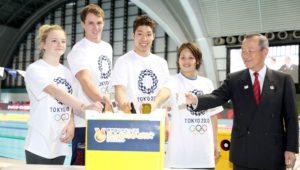
Tokyo 2020 highlights the possibilities for a circular economy
As the first athletes receive their medals on the podiums, they will be pushing boundaries in other ways too. For the first time ever, […]


F1 announces scholarship and internship programme to improve diversity
Formula 1 (F1) has announced new programmes to increase the presence and participation of under-represented groups as well as to enhance diversity in the […]




At Tokyo 2020, hydrogen shows promise of a carbon-free future
Lighting the Olympic cauldron formally marks the end of the torch relay and symbolises the continuity between the ancient and modern Games. At Tokyo […]

